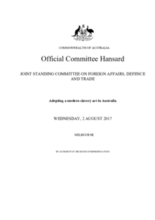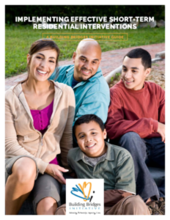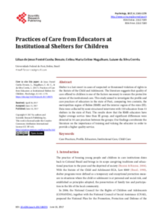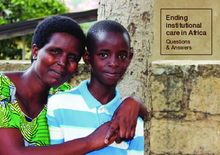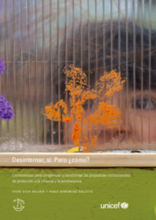Displaying 301 - 310 of 691
This chapter of Child Maltreatment in Residential Care describes the history of child care institutions in the Russian Federation and the legislative changes implemented to improve the situation of children living in residential care settings.
This document includes the full transcript of the public hearings of the Australian Parliamentary Inquiry in preparation for a Modern Slavery Act.
This document serves as a guide for implementing short-term residential care interventions; grounded in evidence-based practice, the Guide provides "7 essential elements of short-term residential intervention" with case examples from the field in the United States.
This study aimed to investigate the profile and care practices of educators teaching at institutional shelters for children in the state of Pará, comparing two contexts, the metropolitan region of Belém (RMB) and the interior region of the state (IE).
In this Q&A document, organisations that have joined forces to put an end to institutional care in Africa explain why and what they are doing to ensure all children grow up in the love of a family.
En esta publicación, a partir de la experiencia de trabajo y la reflexión sobre su propia práctica, La Barca ordena, sistematiza y pone a disposición de todos los actores del sistema de protección a la infancia de Uruguay los principales aprendizajes de la tarea realizada en los últimos años.
A review of the evidence on deinstitutionalisation (DI) and the status of care reforms across Europe in 2016 from the Opening Doors for Europe's Children campaign - a pan-European campaign advocating for strengthening families and ending institutional care.
This chapter explores the drivers behind the continued, and in some parts of the world, growing, institutionalization of children.
The Committee's recommendations on the issues relevant to children's care are highlighted, as well as other care-related concluding observations, ratification dates, and links to the Universal Periodic Review and Hague Intercountry Adoption Country Profile.
This paper examines the deinstitutionalisation process in Bulgaria.

